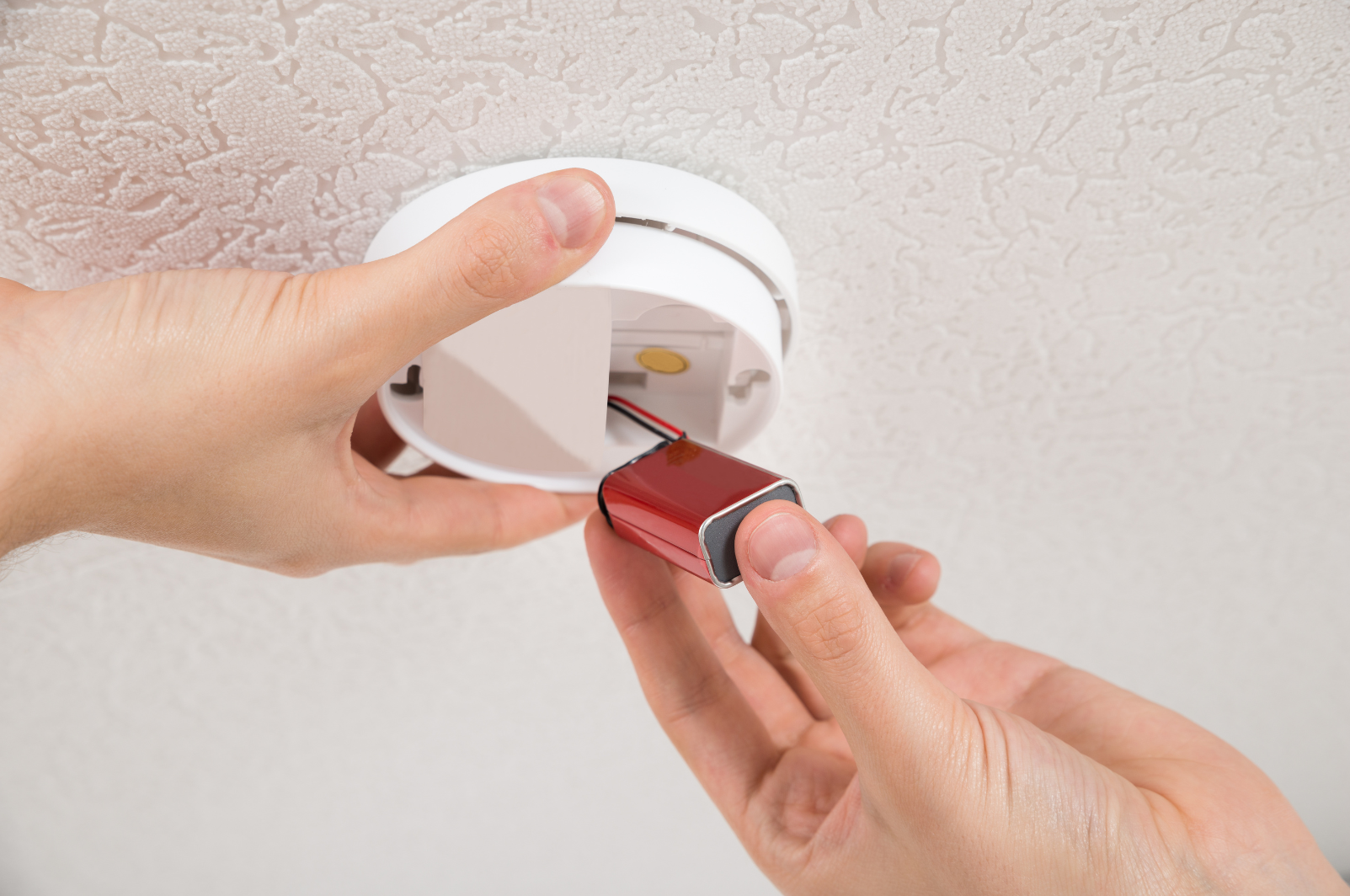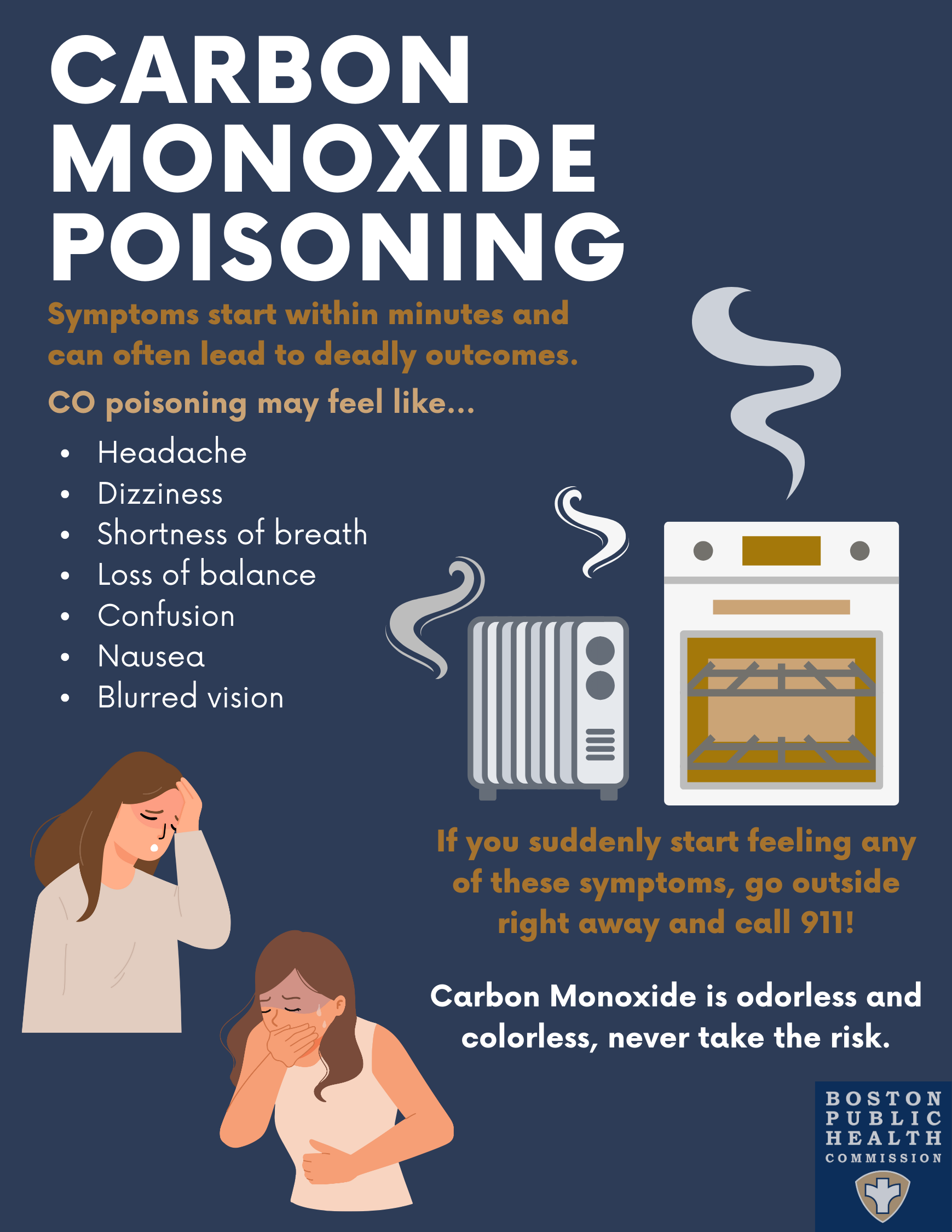Fire and Carbon Monoxide Safety
Be prepared to keep you and your family safe in case of a fire emergency.
Fires can start and spread in a matter of seconds. The most common causes of fires include cooking, heating, candles and smoking. In Massachusetts, heating is one of the main causes of home fires. It's important to be aware and prepared to keep you and your family safe in case of a fire emergency.
Fire safety
Smoke Alarms Save Lives
- Install smoke alarms on every level of your home and near all bedrooms
- Test your smoke alarm once a month
- Change your smoke alarm's back up batteries every 6 months
- Replace your smoke alarm every 10 years
- Contact Boston Fire Department for Smoke and Carbon Monoxide Detector Inspections
Fire Prevention
- Never leave cooking unattended. Cooking is the #1 cause of fires in the U.S.
- Keep oven mitts, towels, and anything else that can catch on fire away from the stove
- Set a 3-foot safety zone away from the stove and oven for children
- Store matches, candles, and lighters up high and away from children
- Remember to blow out candles when leaving the house or before going to bed
- Buy flame resistant curtains and keep all furniture and fabrics at least 3 feet away from wall and space heaters.
- Have your heating system and appliances inspected by a technician every year
Fire Escape Plan
- Create a floor plan of your home and map out a fire escape plan with your family
- Make sure there are at least 2 ways out of every room
- Have an outside meeting place for everyone to re-group out. Make sure that it is a safe distance away.
- Practice the fire escape plan with everyone twice each year
- If you live on the 2nd or 3rd story, consider buying emergency safety ladders for each bedroom
- On higher floors keep neon flags or shirts to hangout of windows in the event you become trapped inside
Carbon Monoxide
Carbon Monoxide (CO) is an odorless, colorless and tasteless gas. Carbon monoxide poisoning happens when CO builds up in the bloodstream, preventing the body from using oxygen. CO poisoning typically attacks your heart and brain, severe case can cause permanent damage or even death. Since you cannot see, taste, or smell carbon monoxide people often do not realize that they are breathing it in. The only way to know if CO is in your home is with a CO detector. Families need CO detectors installed on every level of their home and in every sleeping area. Families should also know how to prevent carbon monoxide poisoning, the symptoms, and what to do if it is happening to you.
CO is produced when fuels like gas, propane, and oil aren’t burned completely. Common sources of CO include stoves, dryers, and space heaters. Heating a car inside of a garage or with blocked tailpipes can also cause dangerous levels of CO to form.
CO Poisoning Symptoms
Babies, pregnant women, the elderly, and those with heart and blood conditions are at greater risk of carbon monoxide poisoning. If experiencing any of these symptoms it is important that these groups follow-up with a medical professional to ensure that there is no deeper damage.
CO Poisoning Prevention
- Install carbon monoxide detectors on every level of your home near bedrooms
- Never use a gas range or oven to heat your home
- Never use gas powered generators indoors, or near doors and windows
- Never leave your car running inside of a closed garage
- Always clear your cars tailpipe of debris and snow, especially during the winter
- Have your heating system and appliances inspected by a technician every year and keep up with there maintenance
- Contact Boston Fire Department for Smoke and Carbon Monoxide Detector Inspections
Renter's Rights
If you are renting, it is important to know your rights surrounding fire safety. According to MA state law, Nicole's law, every residential building and apartment unit that use fossil fuels must have operating Carbon Monoxide (CO) detectors before residents move in. In addition this law requires Landlords to annually change the batteries in CO detectors as well as replace the alarms upon expiration every 5-10 years. CO alarms should be installed on every level of your home, including basements and attics. There should also be detectors within 10 feet of every sleeping area. Every home or apartment, regardless of whether or not they receive fossil fuel services is required to have operating fire alarms in every sleep area and most common spaces. Apartment complexes should have hardwire smoke detectors with back up batteries. It is important to test your smoke alarm yearly. It is also recommended to change smoke alarm batteries every six months. Landlords are held to the same standard when it comes to smoke alarm maintenance and replacement. If you find that your CO and smoke alarms are expired or non-operating contact your Landlord for it to be fixed. If they refuse or postpone it for a pro-longed period of time (one week or more) please contact your local Boston Fire department for help using their non-emergency line.





